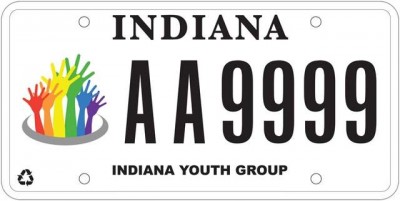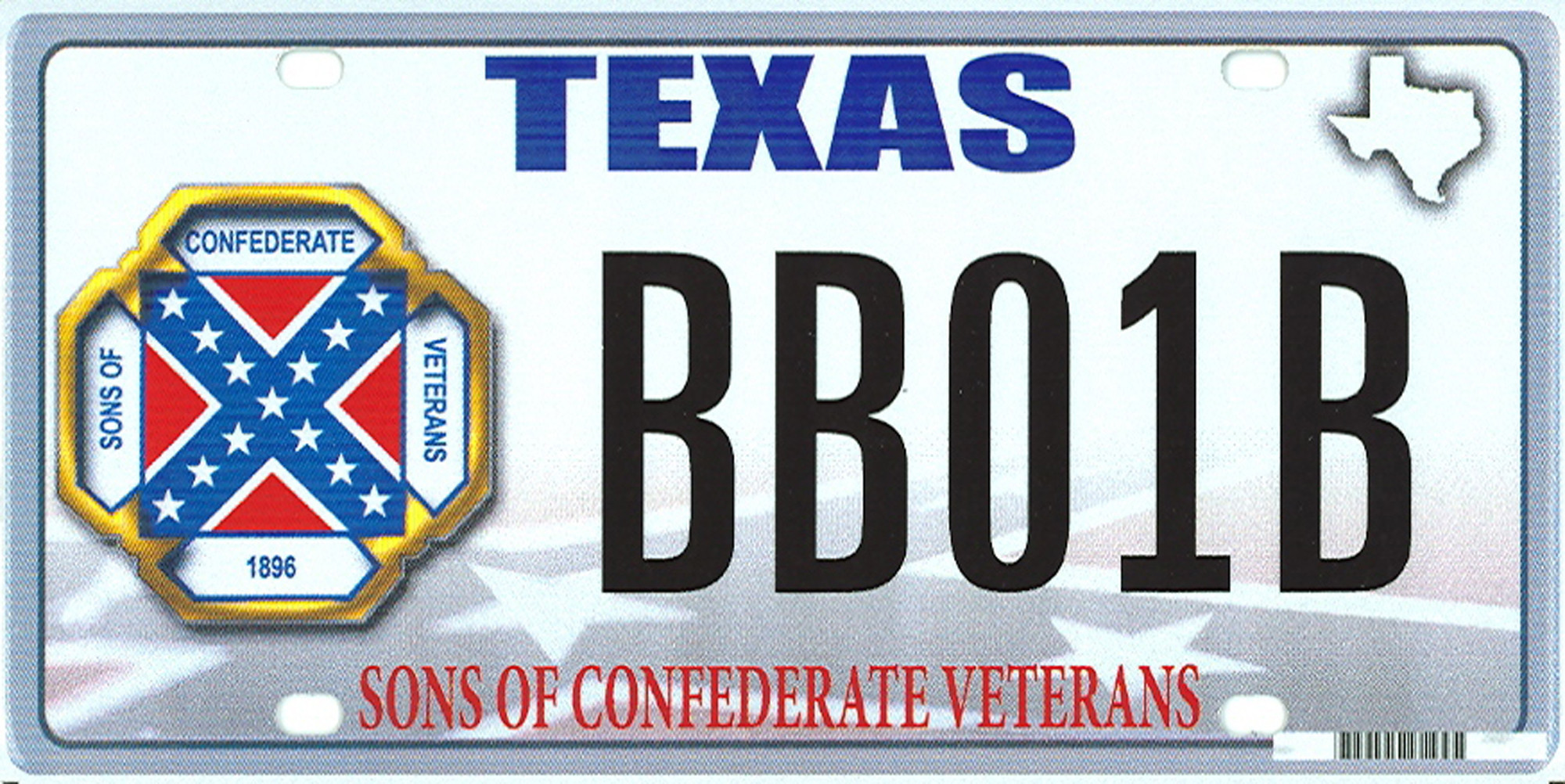Yesterday, the Supreme Court issued a ruling involving free speech and specialty license plates. (If you missed it, wrote about it for TheCarConnection.com.) In a 5-4 decision, the majority found that license plates are state speech, not personal speech, and that states therefore have the right to control the plates’ messages.
Personally, I’m a little conflicted about the decision.
On the one hand, I agree with the majority that plates are, in many ways, state speech. The state receives applications for specialty plates, facilitates public comment on them, evaluates them, and if they’re approved, the state manufactures and sells them. It’s basically a state ID for your vehicle, and few people would argue that state IDs are personal speech.
However, as appalling as the plate in question was (you can see it above), and as timely as the decision may have been (arriving on the same day that a racially motivated hate crime in South Carolina was making national headlines), I’m a little uneasy at the thought of states determining what is and isn’t offensive speech. For example, as a firm believer in reproductive rights, I’m kind of offended by the presence of anti-abortion specialty plates in so many states across the U.S. Now that plates are recognized as state-approved speech, does that mean that states with those plates are officially anti-choice?
 How does all of this affect LGBT Americans? Consider the case of the Indiana Youth Group that fought long and hard to get its own specialty plate approved. Early in the application process, it was clear that Indiana’s DMV was unwilling to approve a plate with an overtly pro-LGBT message. And that’s how the group wound up with the nondescript plate it has today: apart from the rainbow hands, there’s no indication that proceeds from this plate support LGBT youth at all.
How does all of this affect LGBT Americans? Consider the case of the Indiana Youth Group that fought long and hard to get its own specialty plate approved. Early in the application process, it was clear that Indiana’s DMV was unwilling to approve a plate with an overtly pro-LGBT message. And that’s how the group wound up with the nondescript plate it has today: apart from the rainbow hands, there’s no indication that proceeds from this plate support LGBT youth at all.
Don’t get me wrong: I think it’s great that there’s a specialty plate raising funds for LGBT young people in Indiana — home of much homophobia and hullabaloo earlier this year. And sure, I understand that, even if Indiana had nixed the plate altogether, supporters would’ve been able to slap bumper stickers on their cars — just as the Sons of Confederate Veterans can do in Texas. But it doesn’t change the fact that the state now has full control over some messages in the public arena.
Is this a slippery slope that could lead to the erosion of individual free-speech rights? Or is this a narrow ruling that has little bearing on what you and I can say in public?
I don’t have any answers here. Just food for thought for a Friday, I guess.

And the states should control the license plates. There are way too many out there now. States should only issue a single style of plate. Distinctive to that state. There are probably at least 1200+ styles of plates in the U.S.. That is ridiculous and a safety issue.
I tend to agree. Specialty plates aren’t just a safety matter or free speech matter, they also complicate the work of state agencies, meaning that those agencies have to spend more money and time to manage dozens or even hundreds of plates. Get rid of specialty plates, streamline the licensing process, and you’ll probably improve efficiency. If people want to make a statement, let ’em buy a bumper sticker.